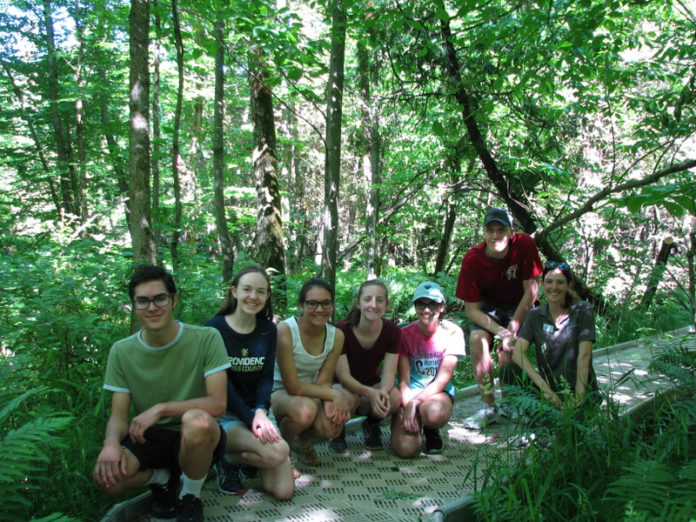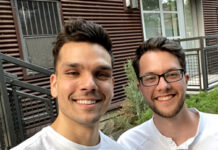Science students at Providence Academy (PA) have participated in various unique and exciting real world experiments and projects.
Dr. Yvonne Boldt, biology teacher at PA, is in her 6th year of leading students in the Soil Application Research Program (SARP). They conduct research on the effects of different soil amendments on plant growth. Because the group performs tests on trees, vegetables, and birch and oak saplings that are on campus, students are able to observe changes over time. The research is partially funded by Precision Organics whose soil treatment product (C20) is being tested by Dr. Boldt and the students.
In addition to SARP, Dr. Boldt recently worked with students in ecology research at the Cedar
Creek Ecosystem Science Reserve, a University of Minnesota biological field station. Students
worked with Dr. Boldt and Dr. Caitlyn Potter of Cedar Creek to answer questions about the
effects of fire frequency in Oak Savannas on insect populations, plant litter depth and soil pH.
Students presented their research to a Cedar Creek symposium to undergraduate and graduate students and University of Minnesota Administrators.
Mr. Michael Plucinski, PA’s physics and engineering instructor, recently worked with students to
redesign a robot for the school’s FIRST Robotics team. They participated in the Minnesota State Fair Robotics Demonstration and earned a ribbon for technology design. Many of these same students built a cosmic ray detector from materials given to the school by Fermilab, America’s particle physics and accelerator laboratory. Students used the detector telescope to collect data before and during the total solar eclipse, to determine if the number of cosmic rays from the direction of the Sun would alter. Students and their families were invited to a solar eclipse viewing party organized by Mrs. Elise Sheehan, PA’s science department chairperson. Middle School students were specially invited to participate in a NASA Citizen Science experiment to observe how temperature and cloud formations changed during the eclipse.
Next summer, PA students will have a new opportunity to engage in science research by
traveling to Costa Rica for two weeks, working with University of Wisconsin professors to
discover new antibiotics from plants and insects in the rain forest. The “Seeds of Change”
initiative gives high school students the chance to learn professional research techniques and
design experiments alongside graduate students and university professors. From the classroom to the real world equals science at PA!







